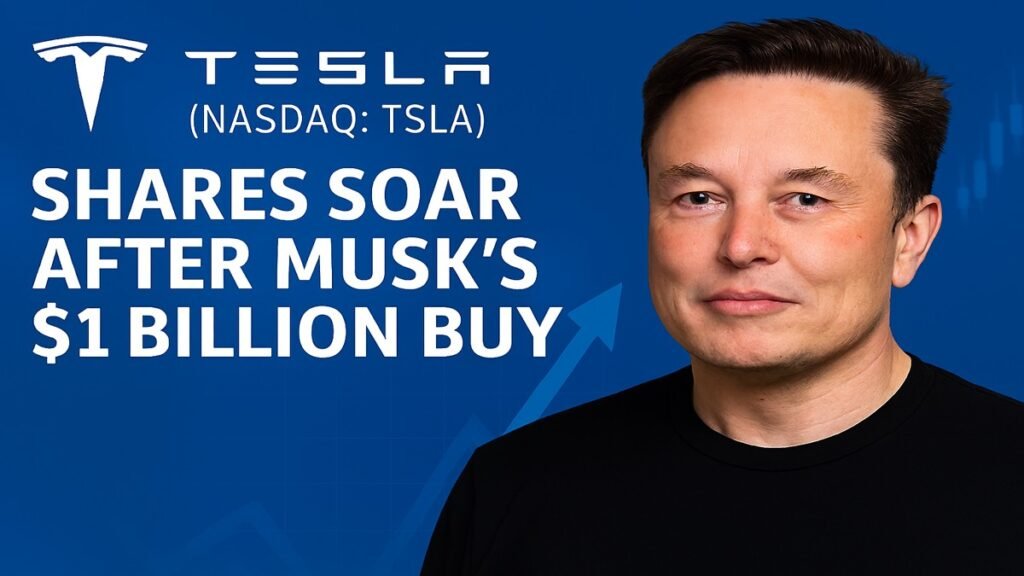Tesla’s (NASDAQ: TSLA) share price jumped sharply on Monday after CEO Elon Musk purchased more than 2.5 million shares worth about $1 billion. The move, disclosed in a regulatory filing, is being widely interpreted as a strong signal of confidence in the electric vehicle maker’s future.
According to filings with the U.S. Securities and Exchange Commission, Musk acquired approximately 2.57 million shares last Friday. The purchases were made through his revocable trust in multiple blocks, at prices ranging between $372.37 and $396.54 per share. This marks Musk’s first major open-market buy of Tesla stock since 2020, a fact that has heightened investor attention.
Markets responded quickly. Tesla shares surged more than 5% to 8% in early trading following the announcement. The purchase helped the company’s stock turn positive for the year after a period of underperformance marked by slowing deliveries and increased competition in the global EV market.
While the acquisition modestly increases Musk’s ownership stake, analysts argue its true significance lies in the message it sends. Tesla has faced questions about demand, profitability, and Musk’s own distractions outside the company. By putting a billion dollars of his own money into Tesla, Musk is signaling long-term commitment at a time of uncertainty.
The purchase also comes ahead of a crucial shareholder vote scheduled for November 6, when investors will decide on a massive performance-based compensation plan for Musk. If approved, the package could be worth up to $1 trillion in stock, contingent on Tesla hitting aggressive growth and market milestones. Some analysts believe Musk’s stock buy may influence shareholders by showing his willingness to personally invest in Tesla’s future.
Market watchers were quick to weigh in. William Blair’s Jed Dorsheimer said Musk’s purchase should reassure investors, particularly regarding Tesla’s ambitions in self-driving technology and robotaxi networks. Analyst Daniel Ives echoed this view, describing the move as timely and likely to boost confidence in Tesla’s long-term valuation potential.
Still, challenges remain. Tesla has reported declining vehicle deliveries in recent quarters as global EV demand cools and incentives weaken in some regions. The company also faces stiff competition from Chinese automakers and legacy carmakers pivoting aggressively to electrification. At the same time, Musk’s outspoken political views and social media controversies have raised concerns about reputational risks that could spill over into the brand.
Despite these headwinds, investors see Musk’s buy as a pivotal moment. It signals confidence in Tesla’s ability to innovate, particularly in areas like artificial intelligence, autonomy, and new mobility models. It also provides momentum ahead of the shareholder vote on his pay package, a decision that could shape Tesla’s leadership structure for years to come.
Looking ahead, Tesla’s ability to deliver on production targets, profitability goals, and autonomous driving breakthroughs will determine whether Musk’s billion-dollar bet pays off. For now, Wall Street has welcomed the move, with Tesla stock rallying strongly. But if the company fails to meet its ambitious targets, the market’s renewed optimism could be short-lived.
In the end, Musk’s $1 billion stock purchase is more than a financial move—it is a calculated message to investors, competitors, and critics alike. At a time when Tesla’s trajectory is under intense scrutiny, the CEO has put his own capital on the line. The next chapter for Tesla will depend on whether its performance can match Musk’s unwavering confidence.

